Why do muscles cramp up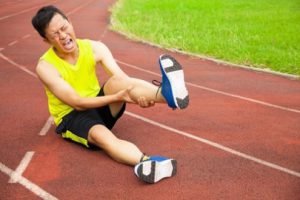 ?
?
Well, to put it simply, when you exercise, your muscles have to do a lot of quick-fire contraction and relaxation. If there is too much Calcium (Ca), which is the element that causes contraction of the muscles and too little Magnesium (Mg), the element that causes relaxation of the muscles, the result will be muscle cramps and lactic acid buildup. Without Mg the muscles can’t relax, hence you get muscle spasms or cramps where the muscle is continually contracting and that contraction cannot release into relaxation.
So what is magnesium?
Mg is a metallic element, No. 12 in the periodic table. By mass, it is the 11th most abundant element found in the human body. It’s ions are essential for all our body’s 37.2 trillion cells and it is a cofactor in what is now believed to be up to 800 enzymes, more are being added as research goes on.
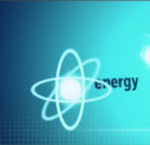 What does magnesium do?
What does magnesium do?
It does plenty, but lets concentrate on probably the most important role Mg has, that of triggering ATP production. The most important Mg dependent enzyme is that which controls the creation of energy by activating ATP. Adenosine Triphospate is the vital molecule that stores energy within the mitochondria (organelles) which reside in our cells. Because muscles need so much energy to work efficiently, there are vast numbers of mitochrondria in the cells of muscles. It is estimated that between 200 and 2000 mitochondria reside in each cell. The muscle cells have a higher number of mitochondria compared to most other cells, so as to cope with the energy necessary to work our muscles efficiently, this includes of course, our heart.
Have a look at this short video. It is actually advertising a good book on Mg and heart disease, by an eminent cardiologist Dr Dennis Goodman MD, but it also explains simply, how Mg is vital to produce ATP the energy source of our bodies.
Athlete or not, be aware!
There is the incidence of sudden cardiac death syndrome, which can affect athletes.¹ A study done in 1994, the subjects of which were fit, healthy and well conditioned young men, showed that strenuous and continuous effort affected Mg levels. Mg levels declined, while there was an increase in cholesterol and triglyceride levels and blood sugar. Studies established that sudden deaths of athletes who were given to intense training and stress by way of extreme exertion, caused the continual loss of Mg which had a detrimental and devastating affect on their cardiovascular system.² ³
 Magnesium the performance enhancer
Magnesium the performance enhancer
Athletes are under immense bodily and mental stress, which puts a tremendous burdon on magnesium levels. Runners, swimmers, skiers, cyclists, body builders, tennis players etc., are often driven to push their bodies to the limit and this can cause a huge burden on their Mg levels. With a Mg supplement, endurance and performance will be enhanced. The effects of lactic acid build up will be reduced and post exercise pain and cramping will be minimized.
A cautionary tale
A certain Florida high school football team coach was trying to find a remedy for the frequent complaints of leg cramps by his players. His answer was to give them all a calcium supplement before a demanding game on a very hot day. In the second half, eleven players started showing signs of distress. They were disorientated, could hardly walk, they had severe muscle cramps, slurred speech and were breathing heavily. Soon after, eight of the boys collapsed having seizures with two of them having repeated convulsions. The ones affected the most were those that had had the hardest game. Thirteen more boys complained of nausea, weakness, headaches, blurred vision and muscle twitching.
Why did this happen?
All the boys recovered from this frightening affect, but what was the cause?
 Before the game, the players had a fast food meal of mainly carbs and fats, along with sodas which contain phosphoric acid. This junk food meal was magnesium deficient but not calcium deficient.
Before the game, the players had a fast food meal of mainly carbs and fats, along with sodas which contain phosphoric acid. This junk food meal was magnesium deficient but not calcium deficient.- The game was strenuous causing intense sweating and muscle usage depleting Mg further.
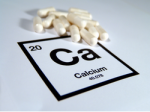 Extra calcium was taken before the game while magnesium stores plummeted to critical levels.
Extra calcium was taken before the game while magnesium stores plummeted to critical levels.- Heat was an added stressor. Stress uses copious amounts of magnesium.
- The will to win, is an added mental stressor, more magnesium loss.
 The complete imbalance of these two antagonistic minerals resulted in too much calcium in the cells with too little magnesium to usher calcium back out of the cells.
The complete imbalance of these two antagonistic minerals resulted in too much calcium in the cells with too little magnesium to usher calcium back out of the cells.- The result is cell excitation by calcium which produces tension and contraction of the muscle cells. Magnesium is so depleted that it cannot displace the calcium to enable muscle relaxation. Consequently, muscle spasms, seizures, arrhythmias, headaches,
 weakness, twitching, disorientation, visual disturbances… which could lead to sudden cardiac arrest.
weakness, twitching, disorientation, visual disturbances… which could lead to sudden cardiac arrest. - The boys’ hearts were working at maximum. The human heart cycles around 6kgs of ATP, our energy source, per day!! Without Mg to activate this enzymatic process, the
 necessary energy will not be produced and the heart will be put under stress.
necessary energy will not be produced and the heart will be put under stress. - Calcium should reside mostly outside of the cells whilst Mg should mostly reside inside the cells. The above situation compromised this function. It could have been fatal and sometimes it is as documented below.
Famous athletes – Victims of Sudden Cardiac Arrest

Caroline Bradley – Top showjumper Caroline Bradley collapsed and died after suffering a heart attack during an event at the Suffolk Show on June 2nd 1983. She was pronounced dead on arrival at Ipswich hospital, and was only 37 years old.
Marc-Vivien Foe – In 2003, Manchester City and Cameroon footballer Marc-Vivien Foe, died after collapsing on the pitch during an international match.
He was just 28 years old.
Scott Rennie – British Olympic rowing hopeful Scott Rennie, suffered a fatal cardiac arrest during training in 2009. He was 25 years old.
Daniel Yorath – The son of former Wales football manager Terry Yorath. Daniel died aged 15, soon after signing for Leeds United.
And in the United States
Flo Hyman – Flora Jean “Flo” Hyman was an American athlete who played volleyball. She was an Olympic silver medalist and played professional volleyball in Japan. She died during a match in 1986. She was 31 years old.

Hank Gathers – In 1990, college basketball star player Hank Gathers, collapsed and died during a game. He was just 23 years old.
Reggie Lewis – Reggie Lewis suffered sudden cardiac death on the basketball court at an off-season practice on July 27, 1993. He was 27 years of age. There was speculation that he took cocaine and this contributed to his death. It is noteworthy that all narcotics including cocaine will rapidly diminish magnesium levels.
To help replace the Mg losses from sweating, stress and exertion from intense training, it is advised by Dr. Seelig, a Mg specialist, that a 220 lb man should have 600 – 1000mg of elemental Mg per day and a woman weighing 150 lb should have 400 – 680mg per day.
 Do You Feel Tired And Not Able To Exercise?
Do You Feel Tired And Not Able To Exercise?
Don’t beat yourself up over it. You’re not lazy, you’re not weak-willed or bone idle. If you haven’t got the energy stored in your body, no matter how hard you try, you will not be able to do the amount of physical exercise you want to. If you strain yourself to do some exercise or training, you will no doubt suffer the next day from muscle aches and pains, or worse. What’s the fun in that.
Mg is required for the body to produce and store energy. Without it there is no energy, no movement, no life.
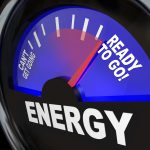 Magnesium both relaxes and energizes
Magnesium both relaxes and energizes
The most amazing thing about Mg is that, despite it being a relaxant, it also provides energy without being a stimulant. It will keep you energised during the day and also enable you to have a good nights sleep. It will make you feel calmer. You won’t be so affected by the everyday problems, trials and tribulations which would normally stress you out. You will be able to calmly overcome and deal with the problems that arise.
be so affected by the everyday problems, trials and tribulations which would normally stress you out. You will be able to calmly overcome and deal with the problems that arise.
Magnesium Citrate
Mg citrate is a good supplement, especially if you have digestive problems like constipation and/or IBS. If you use Mg citrate powder, you will find it easy to control your dosage. It is a gentle laxative so you won’t be rushing to the loo as long as you up your dose slowly until you are comfortable with the result. Tablets can be rather large and difficult to swallow and the powder is quite often cheaper. Mg Citrate is especially good for children because it is so easy to adjust the dose with powder. Also it is tasteless, so the powder can be put in soups, sprinkled on porridge, in stews and casseroles etc.. It can be taken in water or juice but is a bit gritty.
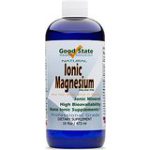 Magnesium Chloride
Magnesium Chloride
IMHO Mg chloride is the best there is and it is not laxative at normal doses. It is completely bio available. It can be administered topically or orally. The oral version doesn’t taste great. It needs to be taken in water and a little cordial will help alleviate the bitter, salty taste. Please don’t use ‘light’ cordials, they will have the dreaded aspartame in them. Aspartame depletes Mg. Using Mg chloride topically is an alternative to taking the supplement orally. My recommendation would be Ancient Minerals a well known and high quality topical Mg chloride to apply to the skin.
Have a look at my page on the Best Magnesium Supplements if you want to know more about all the Magnesium salts that are out there. If you’re already taking a Mg supplement, let me and others know about it by leaving a comment!
And To Finish…
We finish as we started, talking about your fitness program and exercise. Once you start taking Mg, you will notice a change in your energy levels almost immediately. You will be able to do more work, do your training or exercise and do all those little jobs on your list that you couldn’t be arsed to do because they were too tiring and it left you exhausted. Don’t take my word for it, take Mg.
Free Sample!
I would be very pleased, if you live in the UK, to send you a free Mg sample so you can try it for yourself. Just send me an email at ches@psmicrographs.co.uk with your address and I will post you, free of charge, either Mg Chloride or Mg Citrate, whichever you prefer, with enough for one weeks supplementation.
I look forward to hearing from a healthier, happier de-stressed, relaxed you! Ches

- Seelig MS, “Athletic stress, performance and magnesium in consequences of magnesium deficiency on the enhancement of stress reactions; preventive and therapeutic implications: a review” J Am Coll Nutr, vol. 13, no. 5, pp. 429-446, 1994
- Singh RB, “Effect of dietary magnesium supplementation in the prevention of coronary heart disease and sudden cardiac death.” Magnesium Trace Elem, vol. 9, pp. 143-151, 1990
- Stendig-Lindberg G, “Sudden death of athletes: is it due to long-term changes in serum magnesium, lipids and blood sugar?” J Basic Clin Physiol Pharmacol, vol. 3, no. 2, pp. 153-164, 1992
Spread the word!
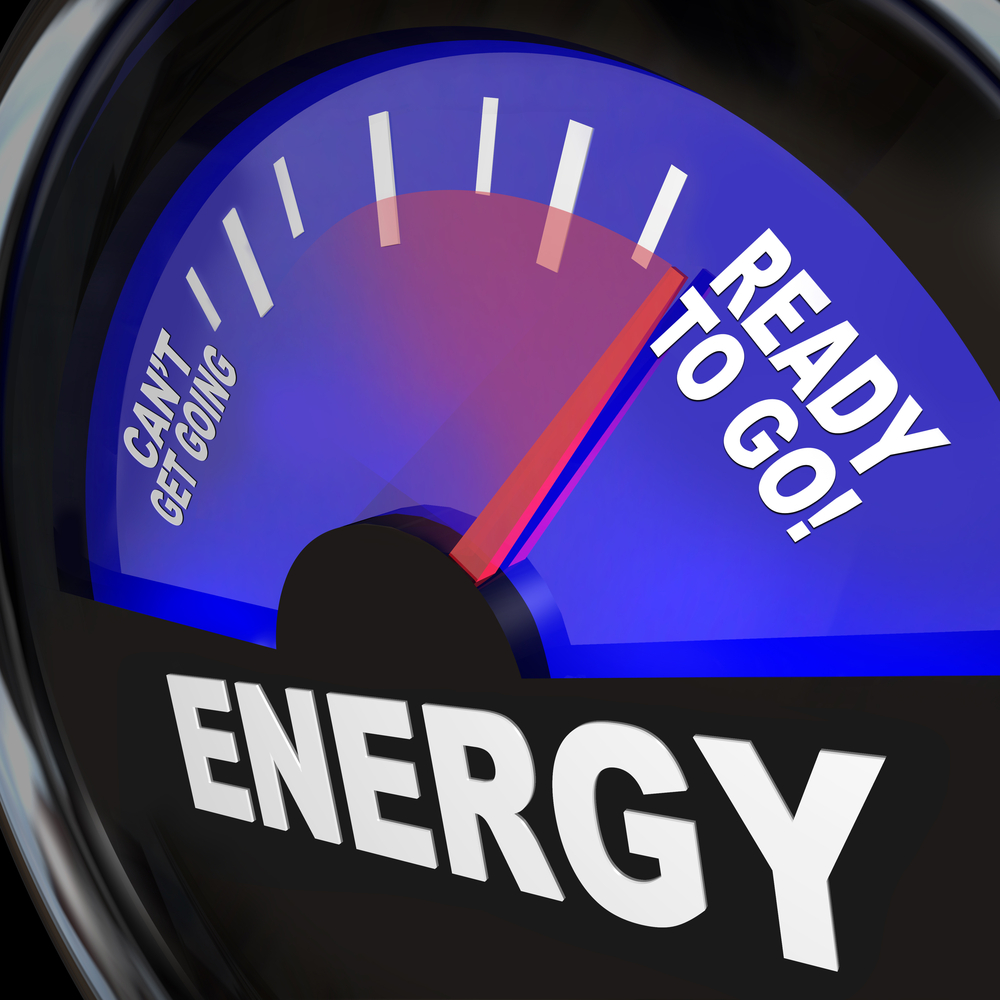
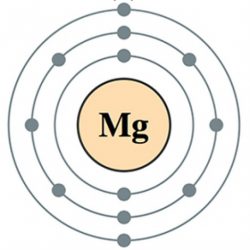
Hey there – Very detailed and professional article I must say. You look like you know very well the subject and I am interested in reading more from you.
I am an athlete myself and doing calisthenics which is a lot of body-weight training – And you got me curious with the Mg.
How much is enough? I don’t want to have side effects as a result of taking too much mg..
Thanks you very much!
Hi Alexey, That’s the beauty of Mg, if the body has too much, it just excretes it. The thing is, everyone is different and uses Mg up at different levels. This is where you need to know your own body. Mg Chloride liquid, is by far the better absorbed and drinking it in water throughout the day is a great way of taking it, especially for athletes who need to be especially hydrated. The rule of thumb is to start with is 6-8mg/kg or 3-4.5mg/lb of body weight per day. This equates to 600-900mg of Mg per day for a 200lb man. I take 600mg per day in 1 litre of water; I’m not an athlete and I’m 160lb. Athletes who are under stress when training or competing need to up their levels accordingly. In fact any stress endured, mentally or physically uses large amounts of Mg because of the ‘fight-flight’ response. You can also use topically applied Mg Chloride such as Ancient Minerals, to up your levels. Thanks for your comment. Ches
I too have suffered nightly leg cramps. Sometimes the episodes last at least an hour. Truly painful!!! I thought it was due to low potassium, but now I think I was low on magnesium, thanks to your webpage. I plan on supplementing my diet with some magnesium and maybe I’ll have more energy too. Thanks so much.
Hi Dan, I’m glad to know that you will be trying to increase your magnesium levels. If you look at Foods With High Magnesium this will help you get the most out of your food choices. You will certainly feel the difference in energy levels and your mood. Try to avoid any calcium rich food or drink in the evening and before bedtime. That will reduce the likelihood of cramps. If you take a magnesium supplement, split your doses throughout the day making sure you have some in the evening. Don’t take low quality magnesium supplements like Mg Oxide. Thanks for your comments and input. Ches
Hey, this reminds me, I used to get quite bad cramp years ago. I was taking calcium supplements but probably didn’t have enough magnesium in my diet. I used to often wake up suddenly in the night with an excruciating pain in my calf muscle. The only thing I could do is tense my foot to help the pain go away. These days I have more than enough magnesium and I never get cramp anymore. It’s amazing what one mineral can do.
Hi Marcus, It’s good to know that you benefit from your magnesium intake. Many people drink or eat calcium products before they go to bed which can induce cramp. Best to keep off calcium in the evenings. Thanks for your comments and input. Ches
Excellent article that clears up a few things I forgot about when it comes to proper health. I’m looking into starting a workout routine but before I do I want to make sure I have my diet in check. This article you wrote will greatly help with my preparations before starting my new routine.
Hi Travis, thanks for the comment and good luck with your new routine! Ches
I used to be a sportsman and magnesium was one of the things that i was taking after workouts. It really shows itself. When you take magnesium after a hard workout, your body just gets fixed. It feels like changing the lubrication of a machine. And i din’t know about the effects of magnesium on muscles. Good article!
Hi there Tyler and thanks for reading this post. I’m glad you’re up on the benefits of magnesium for the sportsman. Yes, magnesium is essential to relax the muscles and should be in equal measure to calcium which, of course, contracts the muscles. Without magnesium, calcium becomes a rogue and can have a devastating affect on the heart as well as other important body functions. I have an interesting article on Angina which is worth a read at http://magnesiumandhealth.com/angina-pectoris-definition/ Keep healthy! Ches
Very detailed and scientific explanation there. A simplified explanation would be good for me 😉 I have heard that magnesium is involved in over 300 reactions within our bodies so is very important. Do you take magnesium yourself? I see you have a few advertised on here. Any one that you would particularly recommend? Thanks.
Hi Rob and thanks for reading the post. I do try to simplify as much as possible without compromising the science, it is sometimes quite difficult. Yes, I do take magnesium myself, Mg Chloride IMHO is the best supplement to take, it is 100% bio available. I do actually take the ionic magnesium at least twice a day and also use Mg Citrate sometimes. Mg Cit. can be bought as a powder which makes it easy to regulate your dose as it can have a laxative effect. Applying Mg topically (Mg Chloride) is also very efficient but it can be a bit of a fag but useful for those who have poor absorption problems, leaky gut, celiacs disease (gluten intolerance) etc.. ‘Ancient Minerals’ I think is the best topical supplement. I only advertise those supplements that I would take myself. Ches
Genuinely learned something here. Thank you very much. As someone who is trying to excel with his health, I have many supplements that I take every day to maintain a happy body. Although Mg is something that seems to have gone under the radar. I’ll be sure to pick some up soon. Great article
Hi Nick and thanks for reading the post. FYI don’t buy Oxide, it is cheap but doesn’t get into the body readily, it’ll go straight through you. Have a look at the reply I gave to Jovo, you may find this useful. If you want to buy in tablet form, the best IMHO is Mg Citrate but it can be a bit laxative if you take the appropriate dose for a man which is at LEAST 300mg of elemental daily. Remember, it’s harmless. If you happen to take too much you will just make a couple more visits to the loo during the day. (Gentle relief if you suffer with constipation or have IBS). I’m pleased to note, you’ve obviously taken your own health into your own hands. Ches
Very interesting article about magnesium indeed. I have learned a lot from here. The title attracted me because I have heard that I might need it. I do mountain climbing and once after some 26 kilometers long walk I collapsed, I wonder if the lack of magnesium was behind this at least partly.
It seems you suggest taking some Mg pills, i have never used them, I think I should try. People told me that almond contains Mg, so I consume almond regularly, I guess it is good for various purposes. Can you say something about it? Thank you.
Hi Jovo, Almonds do indeed contain Mg as do other nuts and seeds. Fish and seafood and green leafy veggie are also high in Mg. If you want to take a supplement IMHO Mg Chloride is the best solution. It can be applied topically but is best taken orally, ReMag is probably the best known on the market, but it’s not cheap, about $30 a bottle each having 96 doses of 1/2 teaspoon. We make up our own here in the UK, (if you were close by I’d give you a bottle). Buy food grade Mg Chloride flakes, put 125g in a little water (about half cup) in a jug. Stir until dissolved and then make the amount up with more water to 250 ml (2 cups), put into a capped bottle and take 1/2 tsp twice a day (am and pm) in about a cup of water, laced with a little cordial (not juice). This amount will last you for 48 days at 2 doses a day which will give you about 300mg of elemental Mg (150mg per dose). You can up the doses if you feel inclined to 3, if you are stressed and/or if you are exercising hard. The cordial is for those with delicate taste buds, it tastes rather salty. Don’t drink it neat out of the bottle, you’ll be sorry! I take it just in water. Thanks for reading the post. Ches